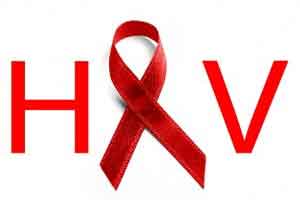- Home
- Editorial
- News
- Practice Guidelines
- Anesthesiology Guidelines
- Cancer Guidelines
- Cardiac Sciences Guidelines
- Critical Care Guidelines
- Dentistry Guidelines
- Dermatology Guidelines
- Diabetes and Endo Guidelines
- Diagnostics Guidelines
- ENT Guidelines
- Featured Practice Guidelines
- Gastroenterology Guidelines
- Geriatrics Guidelines
- Medicine Guidelines
- Nephrology Guidelines
- Neurosciences Guidelines
- Obs and Gynae Guidelines
- Ophthalmology Guidelines
- Orthopaedics Guidelines
- Paediatrics Guidelines
- Psychiatry Guidelines
- Pulmonology Guidelines
- Radiology Guidelines
- Surgery Guidelines
- Urology Guidelines
FDA approves first two-drug regimen for patients with HIV

The U.S. Food and Drug Administration today approved Juluca, the first complete treatment regimen containing only two drugs to treat certain adults with human immunodeficiency virus type 1 (HIV-1) instead of three or more drugs included in standard HIV treatment. Juluca is a fixed-dose tablet containing two previously approved drugs (dolutegravir and rilpivirine) to treat adults with HIV-1 infections whose virus is currently suppressed on a stable regimen for at least six months, with no history of treatment failure and no known substitutions associated with resistance to the individual components of Juluca.
“Limiting the number of drugs in any HIV treatment regimen can help reduce toxicity for patients,” said Debra Birnkrant, M.D., director of the Division of Antiviral Products in the FDA’s Center for Drug Evaluation and Research.
HIV weakens a person’s immune system by destroying important cells that fight disease and infection. According to the Centers for Disease Control and Prevention, an estimated 1.1 million people in the United States are living with HIV, and the disease remains a significant cause of death for certain populations.
Juluca’s safety and efficacy in adults were evaluated in two clinical trials of 1,024 participants whose virus was suppressed on their current anti-HIV drugs. Participants were randomly assigned to continue their current anti-HIV drugs or to switch to Juluca. Results showed Juluca was effective in keeping the virus suppressed and comparable to those who continued their current anti-HIV drugs.
The most common side effects in patients taking Juluca were diarrhea and headache. Serious side effects include skin rash and allergic reactions, liver problems and depression or mood changes. Juluca should not be given with other anti-HIV drugs and may have drug interactions with other commonly used medications.

Disclaimer: This site is primarily intended for healthcare professionals. Any content/information on this website does not replace the advice of medical and/or health professionals and should not be construed as medical/diagnostic advice/endorsement or prescription. Use of this site is subject to our terms of use, privacy policy, advertisement policy. © 2020 Minerva Medical Treatment Pvt Ltd